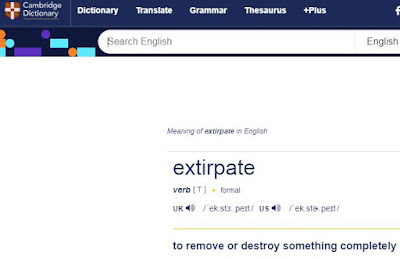... or to put it more simply 'walking'. The word peregrinatio suggested itself because one of the earlier sources for Romance philologists is an account of a pilgrimage by a 4th-century woman (a nun? I expect Wikipedia might have a view) , known familiarly as "The peregrinatio", more formally Peregrinatio ad Loca Sancta (or various other formats) and this (the word, not the text) is the root of the word "pilgrimage".
When starting this post I did some research at the Crisis at Christmas site about a "pilgrimage" that I took part in:
<autobiographical-note type="self congratulatory">
I had already worked out the date, by remembering an unsuitable "Remploy" hold-all I was carrying on the second leg. Had I done the whole walk I'd've had some kind of back-pack (though we didn't call them that in those days, favouring the more Germanic "rucksack"'; according to Etymonline back-pack has been with us since 1904; but it hadn't reached the Knowles family [or rather, it didn't meet the stringent Presbyterian standards of our live-in grandfather, Archie, whose word on language {though not religion}was final]). But I was playing rugby on the Saturday, so missed the Canterbury to Gravesend leg.Anyway, one of the seams came adrift, so I wrote to the manufacturer. And at the beginning of the letter I made reference to the fact that I was a "New Adult" – as it was shortly after my 18th birthday and we'd just been given the vote. It was not a particularly memorable letter, and I don't know what resulted – if anything. The only thing that sticks in my mind is that one phrase – which provides an autobiographical anchor.
<meta-tangent>
About this time I wrote a guitar instrumental in the style of Gordon Giltrap, (though, anachronistically, it had more the feel of Eric Bibb's Walkin' Home – nothing like as cool, but similarly plodding and reflective) called Walking Home from Harrow, but the event it commemorated (involving a missed bus – a regular hazard faced by someone whose school, and therefore peers, were more than an hour away from home; and I think it was not the last bus, but the penultimate bus from Stanmore to Harrow) was a small fraction of the 25-mile second leg of The Bishop's March.)|
</meta-tangent></autobiographical-note>
Anyway, that walk was my first and – so far – only sponsored effort. That is, the walk as planned had all the paraphernalia of these things: goals and targets and teams and signup sheets and what have you; but I didn't play the game. My contribution, if any, was negative. The organizers did all the admin – even booked a hall for the walkers doing the full 2-day pilgrimage – and I didn't pay my way.
But on 27 March I'll be joining this. (And in case you don't feel like clicking on that, here's an extract:
[W]alk with us as the sun sets, this Spring, from wherever you are. You even get to choose your own route and distance.
Whether you walk in memory of a loved one, to reflect on what has been a challenging time for everyone affected by blood cancer, or because you want to light the way to a brighter future – we’d love for you to join us!
)
My JustGiving page is here, but as I say there (or maybe not – it's probably too long, in which case you saw it here first):
...I've set the bar really low, and started the ball rolling by covering it myself. I've already met the goal, so there's no pressure. But Blood Cancer UK is a worthwhile cause, so feel free to chip in.
There's no goal either for the distance I shall cover, though it'll probably be a bit further than my usual daily jaunt - maybe a couple of laps of Langley Mead, water table permitting. The reason (apart from basic temerity) I didn't get any signatures back in 1969 was that I felt that making a donation of <so-much-per-mile> was arbitrary and pusillanimous (not pusillanimous in itself, but inviting pusillanimity: as though a donor might say "Aha, but I've checked in the AA book [no Google Maps in those days] and it's not 25 miles; more like 24 and two-thirds. So I have to pay ...[Let's see, that's 3 times 25, minus 1] 74 75ths [more mental arithmetic in those days too]. Have you got change of
aten bob notehalf-a-crown?")
<inline_ps>
This was a while (just over a year) before decimalization, so the original calculation might have gone like this: 25 miles at4¾6d a mile (that's old pence, or denarii to dress them in their Sunday Best) is118½d or 9s 10½d12/6. (In a display of magnanimity, the donor threw in the extra three halfpence.The revised total would be 12/4.
</inline_ps>
Hell, if a cause is worth giving to, just give. ;-)
Time I showed my nose in The Real World.
b
Update: 2021.01.31.12:45 – Added inline PS.
Update 2021.02.05.14:20 – Updated inline PS to make the calculation more realistic. In fact the 74/75 calculation would be unnecessary as well, since 6d per mile is 2d per ⅓ mile.
Update: 2121.03.01.14:10 – JustGiving coincidence
I was hugely surprised to get an update from the JustGiving people:






